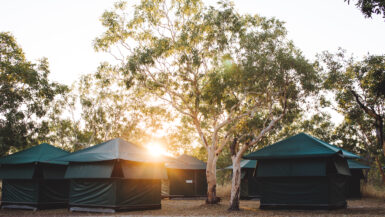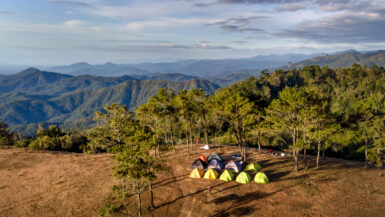Georgia is a state known for its beautiful natural landscapes, from the mountains in the north to the beaches in the south. For those who love camping, Georgia has a variety of options to choose from, including eco-friendly camping sites that prioritize sustainability and conservation. These sites offer a unique opportunity to experience the great outdoors while minimizing your impact on the environment. In this article, we’ll explore the best eco-friendly camping sites in Georgia, highlighting their unique features and what sets them apart from traditional camping sites. Whether you’re a seasoned camper or a first-timer, these sites are sure to provide an unforgettable experience while promoting environmental responsibility.
Introduction to Eco-Friendly Camping and Its Benefits
Camping is a popular outdoor activity that allows people to connect with nature and enjoy the great outdoors. However, traditional camping practices can have a negative impact on the environment, such as leaving behind trash, damaging natural habitats, and polluting water sources. Eco-friendly camping, also known as sustainable or green camping, is a way to enjoy camping while minimizing the impact on the environment.
Eco-friendly camping involves using sustainable camping practices that reduce waste, conserve energy and water, and protect natural habitats. These practices include using reusable or biodegradable products, reducing energy consumption, and practicing Leave No Trace principles.
The benefits of eco-friendly camping are numerous. By practicing sustainable camping, campers can help preserve the natural environment, reduce their carbon footprint, and support local conservation efforts. In addition, eco-friendly camping can lead to a more enjoyable camping experience, as campers can fully immerse themselves in the natural surroundings without worrying about the negative impact of their actions.
In Georgia, there are numerous eco-friendly camping sites that offer a unique and sustainable camping experience. From the mountains to the coast, Georgia’s natural beauty provides a perfect backdrop for eco-friendly camping. In the following sections, we will explore the best eco-friendly camping sites in Georgia, including their amenities, activities, and eco-friendly practices.
Overview of Georgia’s Natural Beauty and Camping Opportunities
Georgia is a state with diverse natural beauty, ranging from mountains to beaches and everything in between. With over 60 state parks, there are endless opportunities for camping and outdoor recreation in Georgia. Whether you are seeking a peaceful retreat in the mountains or a coastal adventure, Georgia has something for everyone.
The Appalachian Mountains in North Georgia offer some of the most stunning views and challenging hikes in the state. Chattahoochee-Oconee National Forest is a popular destination for camping, with numerous campsites located throughout the forest. The Cohutta Wilderness Area is another popular spot for camping and hiking, offering over 90 miles of trails.
For those seeking a coastal getaway, Georgia’s barrier islands offer a unique and unforgettable camping experience. Cumberland Island National Seashore is a must-visit destination, with pristine beaches and untouched natural beauty. Jekyll Island and Tybee Island also offer camping opportunities, along with water sports and other outdoor activities.
In addition to state parks and national forests, Georgia also has private campgrounds that offer eco-friendly camping options. These campgrounds often have amenities such as hot showers, laundry facilities, and recreational activities.
When selecting an eco-friendly camping site in Georgia, it is important to consider the location, amenities, and eco-friendly practices of the campground. Look for campgrounds that have implemented sustainable practices, such as recycling programs, energy-efficient facilities, and water conservation efforts. By choosing an eco-friendly campground, you can help preserve Georgia’s natural beauty for generations to come.
Criteria for Selecting Eco-Friendly Camping Sites
When selecting an eco-friendly camping site, there are several criteria to consider to ensure that you are choosing a campground that aligns with your sustainable values. Here are some important factors to consider:
1. Sustainable Practices
Look for campgrounds that have implemented sustainable practices, such as recycling programs, energy-efficient facilities, and water conservation efforts. Some campgrounds may even use renewable energy sources, such as solar or wind power.
2. Leave No Trace Principles
Choose a campground that promotes Leave No Trace principles, which are guidelines for minimizing your impact on the environment. This includes packing out all trash, avoiding damaging vegetation, and respecting wildlife habitats.
3. Location
Consider the location of the campground and how it fits into your overall travel plans. Is it close to other attractions or activities you want to visit? Is it in a natural setting that aligns with your camping preferences?
4. Amenities
Look for campgrounds that offer amenities that align with your camping preferences, such as hot showers, laundry facilities, and recreational activities. However, be mindful of the environmental impact of these amenities and choose campgrounds that minimize their impact.
5. Reviews
Read reviews from other campers to get an idea of their experience at the campground. Look for reviews that specifically mention the campground’s eco-friendly practices and sustainability efforts.
By considering these criteria when selecting an eco-friendly camping site, you can ensure that you are choosing a campground that aligns with your values and minimizes your impact on the environment.
Top Eco-Friendly Camping Sites in Georgia
Georgia has a variety of eco-friendly camping sites that offer a unique and sustainable camping experience. Here are some of the best eco-friendly camping sites in Georgia:
1. Cloudland Canyon State Park
Located in the northwest corner of Georgia, Cloudland Canyon State Park offers stunning views of the canyon and miles of hiking trails. The park offers several campsites, including walk-in sites and backcountry sites. The campground has implemented sustainable practices, such as recycling and water conservation.
2. Skidaway Island State Park
Located near Savannah, Skidaway Island State Park offers a coastal camping experience with miles of hiking trails and water activities. The campground offers RV and tent sites, as well as cabins, and has implemented sustainable practices, such as recycling and energy-efficient facilities.
3. Black Rock Mountain State Park
Located in the Blue Ridge Mountains, Black Rock Mountain State Park offers stunning views and challenging hikes. The park offers several campsites, including walk-in sites and backcountry sites. The campground has implemented sustainable practices, such as recycling and water conservation.
4. Red Top Mountain State Park
Located on Lake Allatoona, Red Top Mountain State Park offers a variety of water activities and hiking trails. The park offers several campsites, including RV and tent sites, and has implemented sustainable practices, such as recycling and water conservation.
5. Okefenokee National Wildlife Refuge
Located in southern Georgia, Okefenokee National Wildlife Refuge offers a unique and unforgettable camping experience. The campground offers primitive campsites and has implemented sustainable practices, such as Leave No Trace principles and water conservation.
These eco-friendly camping sites in Georgia offer a variety of amenities and activities, while also promoting sustainable practices and protecting the environment. By choosing one of these campgrounds, you can enjoy a unique and sustainable camping experience in Georgia’s beautiful natural surroundings.
Detailed Description of Each Camping Site, Including Amenities, Activities, and Eco-Friendly Practices
1. Cloudland Canyon State Park
Cloudland Canyon State Park is located in the northwest corner of Georgia and offers stunning views of the canyon and miles of hiking trails. The park offers several campsites, including walk-in sites and backcountry sites. The campground has implemented sustainable practices, such as recycling and water conservation. Amenities include hot showers, laundry facilities, and a playground. Activities include hiking, biking, fishing, and geocaching.
2. Skidaway Island State Park
Skidaway Island State Park is located near Savannah and offers a coastal camping experience with miles of hiking trails and water activities. The campground offers RV and tent sites, as well as cabins, and has implemented sustainable practices, such as recycling and energy-efficient facilities. Amenities include hot showers, laundry facilities, and a playground. Activities include hiking, biking, fishing, and kayaking.
3. Black Rock Mountain State Park
Black Rock Mountain State Park is located in the Blue Ridge Mountains and offers stunning views and challenging hikes. The park offers several campsites, including walk-in sites and backcountry sites. The campground has implemented sustainable practices, such as recycling and water conservation. Amenities include hot showers, laundry facilities, and a playground. Activities include hiking, biking, fishing, and geocaching.
4. Red Top Mountain State Park
Red Top Mountain State Park is located on Lake Allatoona and offers a variety of water activities and hiking trails. The park offers several campsites, including RV and tent sites, and has implemented sustainable practices, such as recycling and water conservation. Amenities include hot showers, laundry facilities, and a playground. Activities include hiking, biking, fishing, and water sports.
5. Okefenokee National Wildlife Refuge
Okefenokee National Wildlife Refuge is located in southern Georgia and offers a unique and unforgettable camping experience. The campground offers primitive campsites and has implemented sustainable practices, such as Leave No Trace principles and water conservation. Amenities are limited to picnic tables and fire rings. Activities include hiking, wildlife viewing, and canoeing.
Each of these eco-friendly camping sites in Georgia offers a unique experience and promotes sustainable practices to protect the environment. By choosing one of these campgrounds, you can enjoy a memorable and sustainable camping experience while minimizing your impact on the environment.
Tips for Eco-Friendly Camping, Including Leave No Trace Principles and Sustainable Camping Practices
Camping is a great way to connect with nature and enjoy the outdoors, but it’s important to minimize your impact on the environment. Here are some tips for eco-friendly camping:
1. Practice Leave No Trace Principles
Leave No Trace principles are guidelines for minimizing your impact on the environment. These principles include packing out all trash, avoiding damaging vegetation, and respecting wildlife habitats. By following these principles, you can help preserve the natural environment for future generations.
2. Use Reusable or Biodegradable Products
Use reusable products, such as water bottles and utensils, to minimize waste. If you must use disposable products, choose biodegradable options that will break down naturally.
3. Minimize Energy Consumption
Minimize energy consumption by using energy-efficient lighting and turning off electronics when not in use. Consider using solar-powered chargers or batteries to reduce your carbon footprint.
4. Conserve Water
Conserve water by taking shorter showers and turning off the tap when brushing your teeth or washing dishes. Collect rainwater for washing dishes or cleaning.
5. Choose Eco-Friendly Campgrounds
Choose eco-friendly campgrounds that have implemented sustainable practices, such as recycling programs, energy-efficient facilities, and water conservation efforts.
By following these tips, you can enjoy a sustainable camping experience that minimizes your impact on the environment. Remember, responsible camping begins with each individual camper, and we all have a responsibility to protect the natural environment while enjoying the great outdoors.
Conclusion and Call to Action for Responsible Camping and Environmental Stewardship
As outdoor enthusiasts, it is our responsibility to preserve and protect the natural beauty of our environment. Eco-friendly camping is a way to enjoy the great outdoors without harming the environment. By following Leave No Trace principles and sustainable camping practices, we can minimize our impact on the environment and preserve it for future generations.
Georgia offers a wide range of eco-friendly camping sites that are not only beautiful but also sustainable. These campsites have implemented eco-friendly practices, such as composting toilets, recycling programs, and using renewable energy sources, to minimize their impact on the environment.
When selecting an eco-friendly camping site, it is essential to consider the criteria such as the availability of eco-friendly facilities, the campsite’s location, and the activities offered. Some of the best eco-friendly camping sites in Georgia include Vogel State Park, Skidaway Island State Park, and Cloudland Canyon State Park.
Vogel State Park is a beautiful camping site nestled in the Chattahoochee National Forest. It offers eco-friendly facilities such as composting toilets and recycling programs. Skidaway Island State Park is another excellent camping site that offers eco-friendly facilities, such as water-saving fixtures and solar panels. Cloudland Canyon State Park, located in the northwest corner of Georgia, offers eco-friendly cabins and campsites that are designed to minimize their impact on the environment.
When camping in eco-friendly campsites, it is essential to follow Leave No Trace principles. These principles include packing out all trash, minimizing campfire impact, and respecting wildlife. By following these principles, we can minimize our impact on the environment and preserve it for future generations.
In conclusion, eco-friendly camping is a way to enjoy the great outdoors while preserving and protecting the environment. As responsible campers, it is our responsibility to minimize our impact on the environment and preserve it for future generations. By following Leave No Trace principles and sustainable camping practices, we can minimize our impact on the environment and ensure that our outdoor spaces remain beautiful for years to come.





Leave a reply